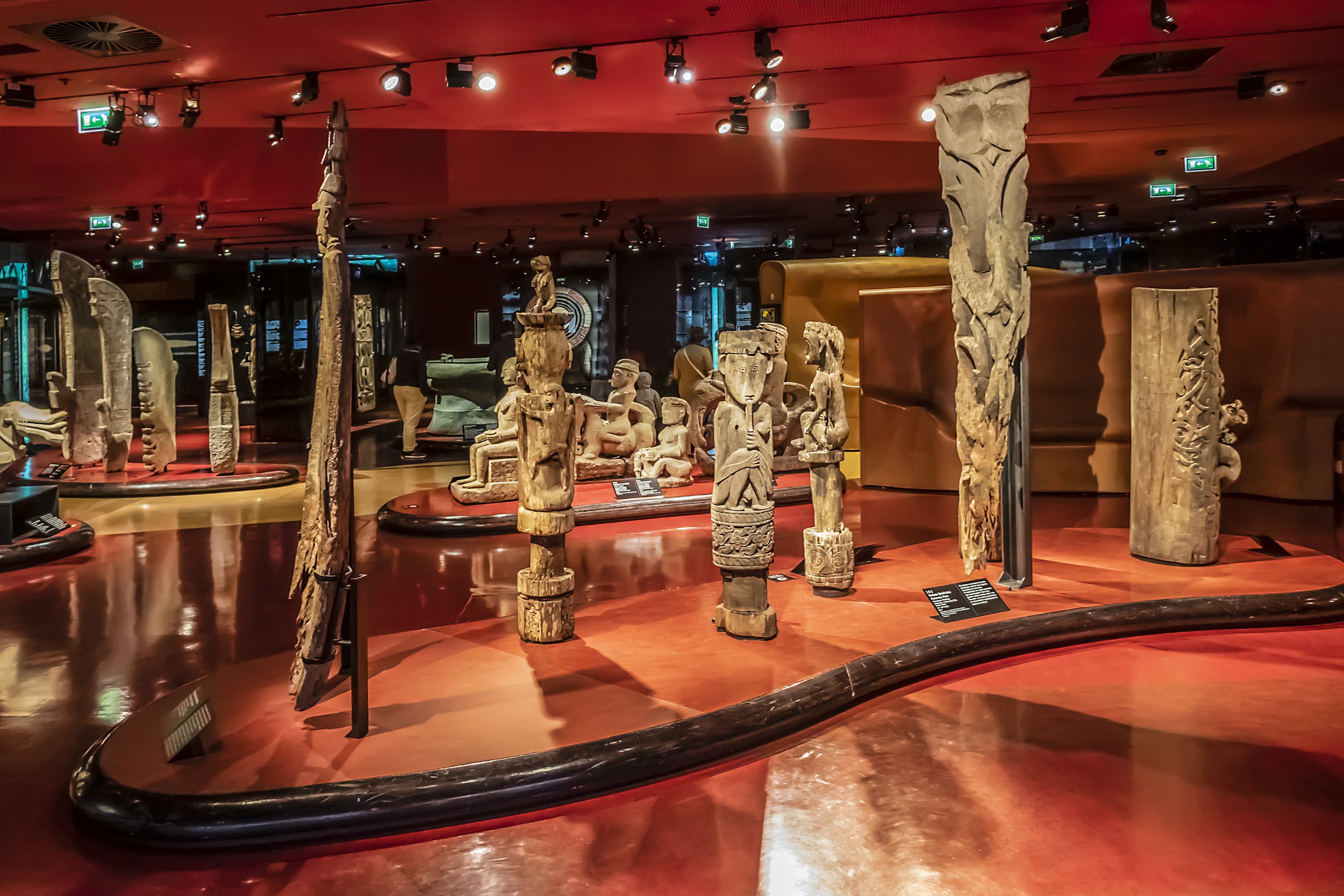Cultural Humility: The Essence of Ethics and Education
In this issue, you’ll find the same bold, boundary-breaking coverage you’ve come to expect—whether it’s the latest in business innovation, the pulse of cultural trends, or the stories of women rewriting the rules. But more than that, you’ll see how interconnected our struggles and triumphs truly are. Across borders, industries, and backgrounds, Womenz Straight Talk is a testament to what happens when diverse voices unite. Thank you for being part of this journey. Your engagement, your passion, and your voice make this more than a magazine—they make it a force. _Cassandra A. Tindal / Editor-in-Chief.
Image: Native American artifact collection showcasing rich cultural heritage in an engaging atmosphere
Cultural Humility: The Essence of Ethics and Education _By: June DePonte Sernak
JANICE PHOTOGRAPHY: DR. JUNE DEPONTE SERNAK
The Lifelong Cycle of Learning and Unlearning
In my vast journey of education, I am amazed at the perpetual cycle of learning and unlearning historic content. As a society, our first teachers are our caregivers, largely from familial and community relationships. As we age, our environments play a tremendous role in our narrative based on decades of storytelling from the experiences of those that came before us. Even our story of evolution varies based on our upbringing, from religious beliefs of Adam and Eve to scientific explanations of the Big Bang Theory, to spiritual theories of the magnificent Turtle Clan. Each learning experience is carried with us like souvenirs in our luggage. Even the broken pieces remain in our baggage and, in many cases, weigh us down during our journey.
Relearning History: The Gaps in Traditional Education
In my doctoral research, I learned and unlearned much of my own ancestry, as many lessons in diverse cultures are absent from traditional educational curriculums. As adults, we are frequently taught in childlike pedagogical standards void of critical skills and intellectual inquiry. Science and technology have vastly increased our ability to learn by opening the world at our fingertips.
From Encyclopedias to AI: The Evolution of Knowledge
There was a time not long ago that families purchased bound books with alphabetized topics to gain knowledge, which was revolutionary. We now have endless searches of global data to decipher, potentially conflicting with our original teachings. In November of 2024, I marveled in the continued interest of Native American History Month and the awareness of the tribal communities’ legacy throughout thousands of years of existence. That feeling of inclusive progress was short-lived with the fiery debate over Columbus Day versus Indigenous Peoples Day that brought out the worst in mankind. With thousands of documented historic accounts, the perspectives of our cultures run deep and are filled with bias and misinformation.
The Divisive Battle Over History and Identity
Social media posts were rampant with disdain and divisive content, with adamant opinions of the true holiday recognition. Understanding education and knowledge requires Cultural Humility for compassion and empathy. Artificial Intelligence provides an impactful opportunity to gather information however will never “feel” empathy toward another culture. My own perspective of my BIPOC heritage is intertwined with my maternal grandfather’s Sicilian lineage.
Pride and Conflict: The Duality of Cultural Identity
Image: Concept, mixed race ethnic diversity
Living in a multicultural environment provides a unique perspective to education and culture, yet creates internal conflicting ethical dilemmas. As a nation, we take pride in declaring our heritage like a badge of honor. We wear it proudly in our regalia and celebrate in our music and food. Our flags fly high at parades and festivals.
When Heritage Hurts: Confronting Difficult Truths
However, what happens when our heritage is the villain in someone else’s cultural story? Can we utilize a lens of Cultural Humility to embrace Diversity of thought? Can we acknowledge our differences and be accountable for our empathy?
Cultural Humility as a Path to Understanding
Cultural Humility provides a framework to understand your own cultural journey to enhance behaviors and interactions with others. The unique opportunity to embark on self-reflection and lifelong learning begins with ancestors and storytelling. The rich history of traditions and rituals lend to the similar behaviors seen in every culture. The ability to search DNA registries provides further insight into regional dialects and familial connections, opening the door on transformative experiences.
Lifelong Learning and the Reclamation of History
Lifelong learning is a key component to andragogy, creating opportunities for higher education. Experiential learning and formal education avenues combine to understand cultural anthropology from its origin. The intersectionality of all forms of diversity creates an equal playing field, ultimately mitigating the imbalance of power in many patriarchal communities. As educators, we have regurgitated Maslow’s classic hierarchy based on physiological needs and rising to an apex of self-actualization to countless students in school curriculums. Through lifelong learning, we have discovered that it was the Blackfoot Nation around whose society Maslow’s model was built, yet Whitewashing of Indigenous History created an imbalance of the contribution the matriarchal tribal communities value.
The Double-Edged Sword of Digital Knowledge
Technology and social media provide immediate results largely in soundbites with marginal context. The increased rates of violence in hate crimes are exacerbated with miscommunication and erroneous narratives. The enlightened breadth of knowledge reframes our learning patterns and creates institutional accountability to seek truth and understanding. Accountability enables an open forum to correct misinformation and build communication pathways for relationships with deeper meaning and compassion.
3,800 Cultures and Counting: A World of Possibilities
Anthropological studies such as Price’s Atlas of Ethnographic Societies have reported over 3,800 distinct cultures globally. Imagine the possibilities.
_Dr. June DePonte Sernak (Statewide Multicultural Diversity Leadership Officer at Center for Family Services)
Image: Interior of Quai Branly Museum (Musee du Quai Branly). Museum featuring indigenous art and cultures of Africa, Asia, Oceania and Americas: masks, sculptures, costumes. PARIS, FRANCE.








